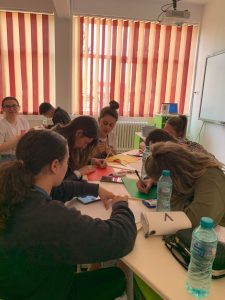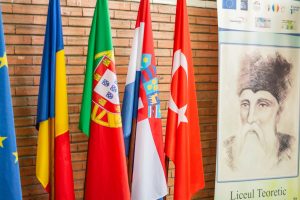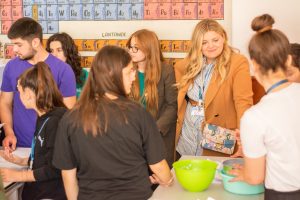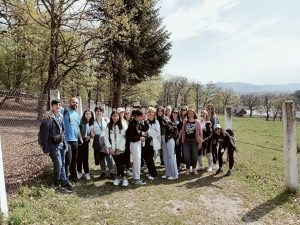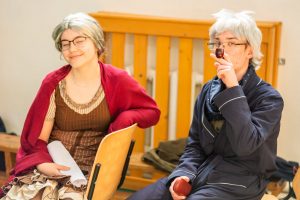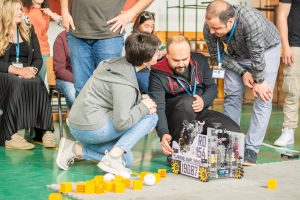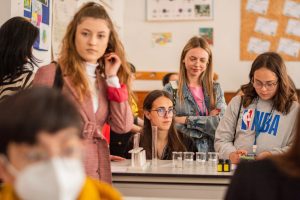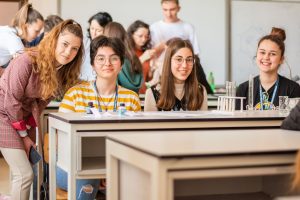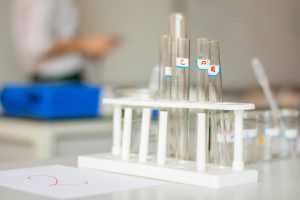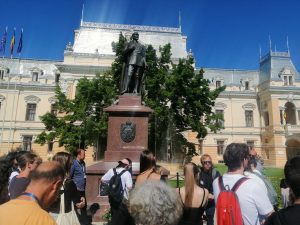“School of Change” foresees the realization of 4 transnational exchanges in Croatia, Romania, Portugal, and Turkey, which will be attended by a delegation of 6 students (plus 2 accompanying teachers) for each school, for a total of 24 participants per exchange including the ones from the hosting school. To identify the direct beneficiaries of the activities, each partner school will elaborate a public selection notice that will be disseminated through the institutes’ website and social channels and during ad hoc info-days to release information on how to participate.
On 10 May 2021, we started sharing the work of the schools involved in the Erasmus + program. This is our first hybrid mobility held in Dubrovnik, Croatia. An important part of an exchange program is the opportunity to meet people from different countries and different cultures. And this is the way to tolerance and goodwill. There was teambuilding organized, meeting each other and presentation activities through icebreaking dynamics. Presentation of the working groups of each country through the presentation of multimedia researches carried out on biodiversity.Teachers orgasined guided debates, working groups on environmental threats that risk undermining the biodiversity of each country. Possible solutions and reflection on the importance of individual daily actions in safeguarding biodiversity.
Activities to be carried out externally, led by the students of the coordinating institution, to discover the local biodiversity and the local organizations/associations of young people who are working to protect the environment. A debate followed on the role of young people in the protection of natural heritage. Class, through the use of digital instruments and the method of the flipped classroom, on the theme “How to preserve our heritage?”. The participants, divided into transnational groups, carried out the discussion in order to express their opinion and point of view. Our Turskih partners had virtual mobility due to lockdown in their country and participated virtualy.
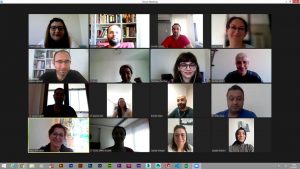
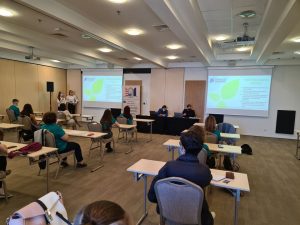
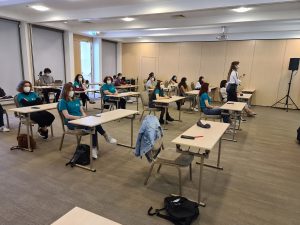
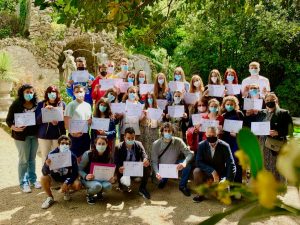
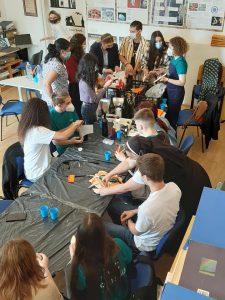
The second transnational exchange (in Turkey: 9-15 January 2022) has been designed in order to allow project participants to acquire knowledge about the concept and definition of Sustainable Development. Specifically, the benefits that the second transnational action produced on participants can be described as follows: they deepened their knowledge regarding Sustainable Development and raise awareness of the 17 Goals defined by the United Nations 2030.Agenda: brought them closer to adopting low-impact lifestyles and more respectful of the environment and sustainability; increased their skills in carrying out surveys and researches through digital and web tools; understood the value of reuse and urban regeneration as tools of protection and respect for the environment around us; developed their creativity; broadened their horizons and encouraged the acquisition of transversal skills through the realization of teamwork; allowed them to come in contact with peers who live in a different cultural and social contexts. The proposal provided for numerous opportunities to get in touch and connect with organizations, associations and young people who operate in the field of environmental protection. This is in order to increase students’ motivation to become active citizens and to contribute with their actions to make a change. They worked in groups and had an opportunity to get to know each other better. They raised an awareness about the project’s main and sub objectives at our school and they kept in touch with some local recycling centers and experts like environmental engineers. Meanwhile, they have still a club about biodiversity, recycling and protecting the environment and conduct other local projects like this one. Actually, our school is also carrying out another project about environment and we shared our outcomes with the project group.
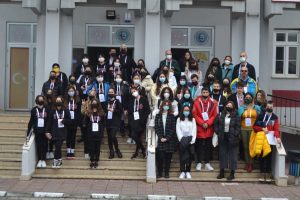




The third transnational exchange (in Portugal: 20-26 February 2022) focused on the structure and design of the Action Plan for the reduction of the environmental impact at school. Participants learnt through digital and web tools how to organize and plan actions that can efficiently bring to the achievement of measurable objectives and impacts. Action Planning skills are transversally used in many different business sectors and are extremely useful for strategic design and implementation. Participants acquired soft skills that is extremely useful in their future: setting goals, setting targets, outlining milestones, define a timeline, conceive realistic implementation steps, monitoring and eventually modifying the planning, distributing and respecting responsibilities and tasks, working in team, solving problems, developing critical thinking and communication skills.This type of activity was beneficial on many levels: it improved their communication skills by using a common language to all participants; their social skills; organizational skills as they planned many of the activities carried out during the interchange, not to mention after-hours gatherings so everyone involved would get to know each other better. Finally, it increased their knowledge of the world, other people and their customs and traditions.
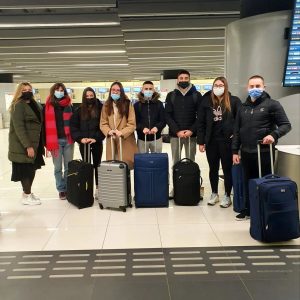
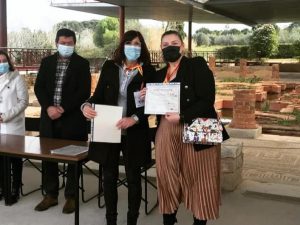
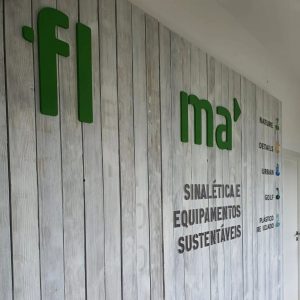
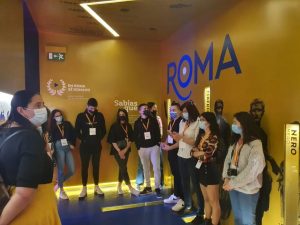
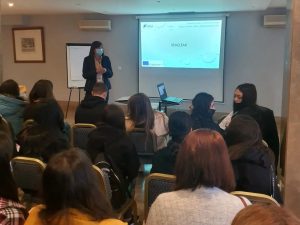
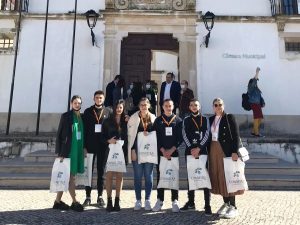
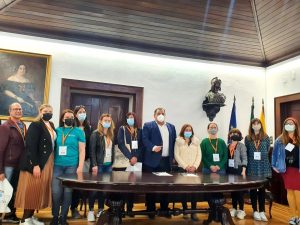
The fourth transnational exchange was held in Romania (2 – 6 of May 2022). The topic for this activity was Be the change! On the first day, we wanted students to get to know each other and work together closely in workshops. Thus, after the opening ceremony and a tour of the school students took part in the Recycled logo activity (making new paper from waste paper) and painting it with the logo of the project. The activity took part in the Chemistry lab. In the afternoon students took part in a brainstorming activity regarding an Eco- friendly school (design a plan for the school, describe the recycling process of paper, plastic, and glass, find a solution to use green energy, find a solution to reduce the negative impact on the environment). They had to present their work to the other students and teachers. On the second day, students had their first activity in la Chemistry lab. Here they had to bring some seawater from different seas (Romania – Black Sea, Turkey – from the Marmara Sea, Croatia – from Adriatic Sea, Portugal – from the Atlantic Ocean). Then they had to measure the water pollution in the seawater, by determining ammonium concentration, total hardness, nitrate concentration, nitrite concentration, phosphate concentration, and pH determination. After that students took part in a Robotics club demo where our students presented the sustainable actions they have made recently to align their activity to the eco-friendly activities in our school. In the afternoon students had a round table discussion and workshop related to the final products of the projects. On the third day, students visited and observed animals under extinction that are protected within the Natural reservation Dragos Voda in Targu Neamt. Next, they visited the natural reservation for flora at Bicaz Lake, Red Lake, and Bicaz Gorge. The 4th day was dedicated to cultural activities and a visit the Botanical Garden in Iași where they had the opportunity to observe some protected species of flora. During the last day there was a coordinators meeting in the morning, then the certificate ceremony, and in the afternoon a visit to the Neamț Fortress.
